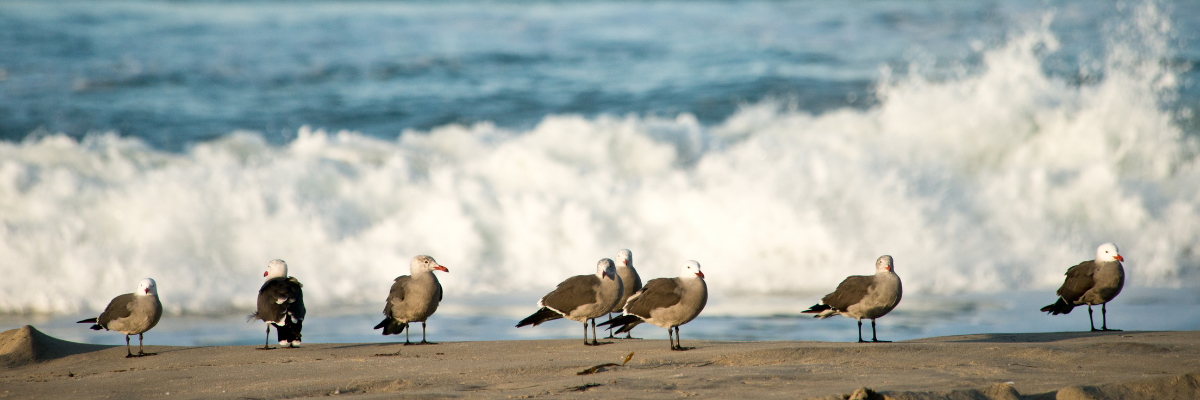
The October meeting was held in San Diego. Rafael Castellanos, Chair of the Port of San Diego, welcomed the Commission. Executive Officer Jennifer Lucchesi provided updates on the Tijuana River transboundary pollution crisis affecting southern California and the Commission’s role in trying to find solutions. The Mayor of the City of Imperial Beach, Paloma Aguirre, spoke about the importance of resolving this crisis and thanked the Commission for its leadership. The Port of San Diego underscored the gravity of the crisis and expressed its gratitude to the Commission for its partnership and ongoing efforts to address the environmental crisis.
The Executive Officer’s Report showcases an array of updates and accomplishments over the past few months, and below are highlights from our meeting. The staff reports and comment letters from our meeting are available on the Commission’s website.
Summary
- Authorized 36 leases for the use of public lands and resources.
- Authorized four lease amendments or assignments and five rent or bond revisions.
- Authorized a title settlement and exchange agreement involving lands in San Francisco.
- Authorized one geologic permit offshore of the City of Oceanside.
Platform Holly Offshore Oil and Gas Decommissioning: Phase Two Agreement
The Commission authorized an agreement that lays the groundwork to decommission Platform Holly and establishes a framework for ending a legacy of fossil fuel extraction in state waters offshore Santa Barbara County. The Phase 2 Agreement, a legal settlement and compromise of potential claims, commits ExxonMobil to undertake the decommissioning of Platform Holly, at its expense, and ensures a vigorous environmental review with final discretionary authority about the decommissioning plan remaining with the Commission.
Legislative Update
Staff reported that the Governor signed its two sponsored bills AB 1706 (Bonta) and AB 706 (L. Rivas), and AB 655 (Petrie-Norris), a bill the Commission supported to protect state waters from a Caulerpa outbreak. Staff updated the Commission about offshore wind energy legislation signed into law, including SB 286 (McGuire), which designates the State Lands Commission as the CEQA lead agency for offshore wind energy projects. Staff briefed the Commission on two-year bills and other anticipated actions when the Legislature reconvenes on January 3, including a pending climate and natural resource bond, and summarized legislation signed into law this year that affects the Commission.
Unauthorized buoys in Lake Tahoe
The Commission approved the removal of three unauthorized mooring buoys in Lake Tahoe. Buoys on land under the Commission’s jurisdiction require a lease. There are nearly 3,700 mooring buoys on the California side of Lake Tahoe, roughly 3,170 of which are under lease. The Tahoe Regional Planning Agency (TRPA) has roughly 3,180 buoys registered on the California side of the lake. This leaves a significant number of buoys occupying Lake Tahoe in violation of both the Commission’s and TRPA’s requirements. The Commission and TRPA have partnered to address these unauthorized buoys, and today, the Commission authorized the removal of the first three buoys. Unauthorized buoys have scenic impacts, may present a hazard to navigation, and may conflict with permitted buoys. The Commission and TRPA anticipate more removal actions in the future. The agencies will continue collaborating to pursue all available enforcement options to address unauthorized structures around Lake Tahoe.
San Diego Unified Port District
The Port of San Diego presented its draft Trust Lands Use Plan to the Commission. The draft Plan, a requirement in the granting statute, establishes a comprehensive vision for how the Port will manage its granted lands. It addresses six elements—water and land use, mobility, ecology, safety and resiliency, environmental justice, and economics—and sets the policy direction for future development, environmental protection, and public improvements consistent with the Coastal Act, Public Trust Doctrine, and the Port Act. The Port will process the draft Plan as a Port Master Plan Amendment with the California Coastal Commission. Once the California Coastal Commission certifies the Amendment, the Port will submit the final Trust Lands Use Plan Port Master Plan Amendment to the Commission for its approval.
Future Meetings and Ways to Stay Informed
The Commission’s next scheduled public meeting is on December 5 at 10 a.m. in Sacramento and will be a hybrid meeting with both virtual and in-person participation options. You can sign up on our website to receive updates about future meetings. Another great way to stay informed is to follow us on social media. You can view a webcast of the August meeting, and past meetings, on Cal-Span.

